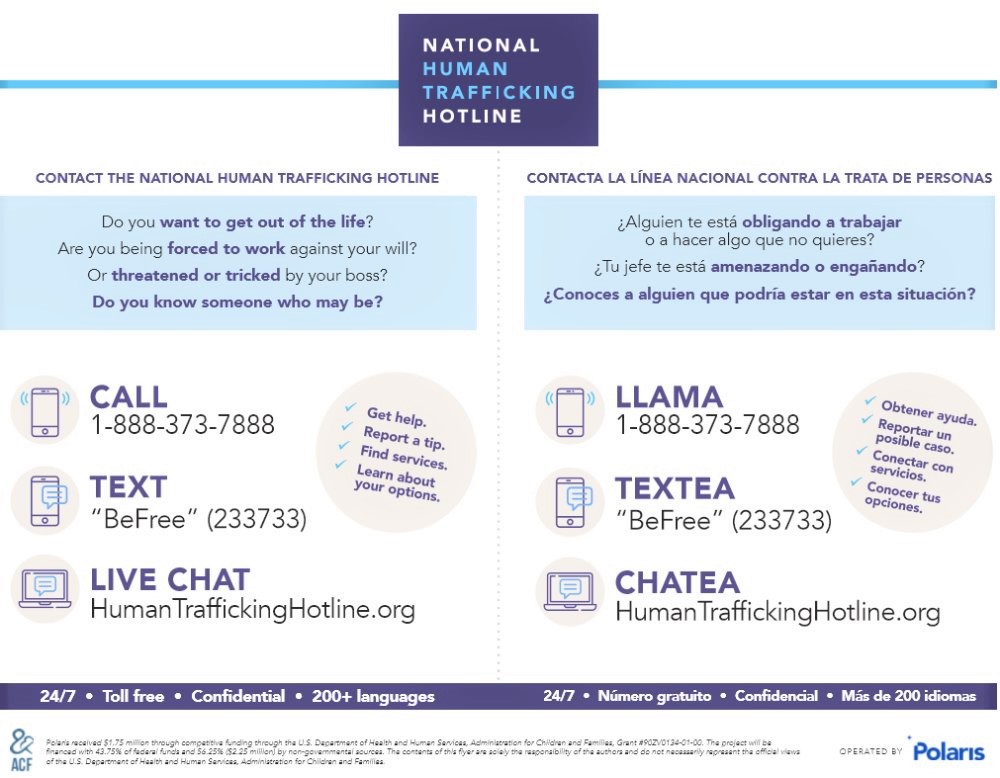Marion County commissioners have approved an ordinance designed to put a dent in human trafficking.
The measure, approved this past Tuesday, is similar to others passed across Florida and will require businesses where there’s human contact, such as massage parlors and adult entertainment clubs, to post notices warning of the dangers of human trafficking. The idea is to get help to those who may feel they are victims of human trafficking and are being coerced to work in certain positions, or to those who feel they need help getting out of a situation, said Marion County Attorney Matthew “Guy” Minter.

“This would provide those people with notifications of who to contact,” Minter said, adding that the ordinance includes a provision for enforcement that could be called into play if businesses refused to post the notices that contain the number for the National Human Trafficking Hotline (1-888-373-7888). “Then, we could have the sheriff’s office assisting us in enforcing these requirements.”
Commissioner Kathy Bryant made the motion to approve the ordinance after citing several 2018 statistics about human trafficking that she’d found through Business Insider’s website.
“In the United States, there is no official number of human trafficking victims, but estimates place it in hundreds of thousands,” she said. “I think one of the most staggering things about the whole issue, as horrible as it is, is that our children are the most vulnerable, with approximately 300,000 at risk of sexual exploitation.”
Bryant said the National Human Trafficking Hotline receives an average of 150 calls per day, and there is an estimate that between 18,000 to 20,000 victims are trafficked in the United States every year. She added that Florida, Texas and California have more cases than any other states.
“Right here in our own backyard,” she said. “So, anything that we can do to bring awareness to this issue, I think is very, very important.”

